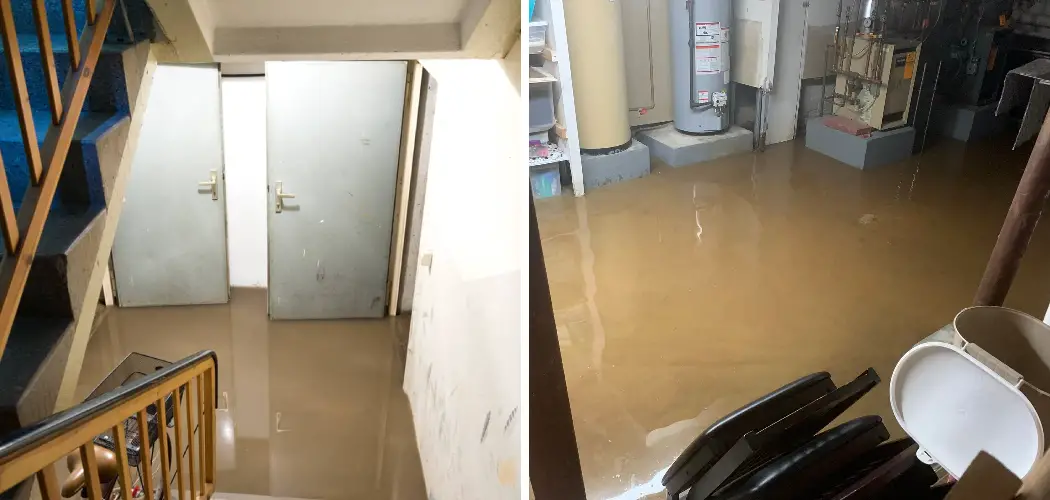If you’re like most people, your basement is one of the most important rooms in your home. It’s a great place to store extra furniture, holiday decorations, and other belongings. But if you live in an area that experiences heavy rains, your basement is at risk for flooding. This blog post will explain how to prevent basement flooding during heavy rain. We’ll also provide tips for cleaning up after a flood occurs. Let’s get started!
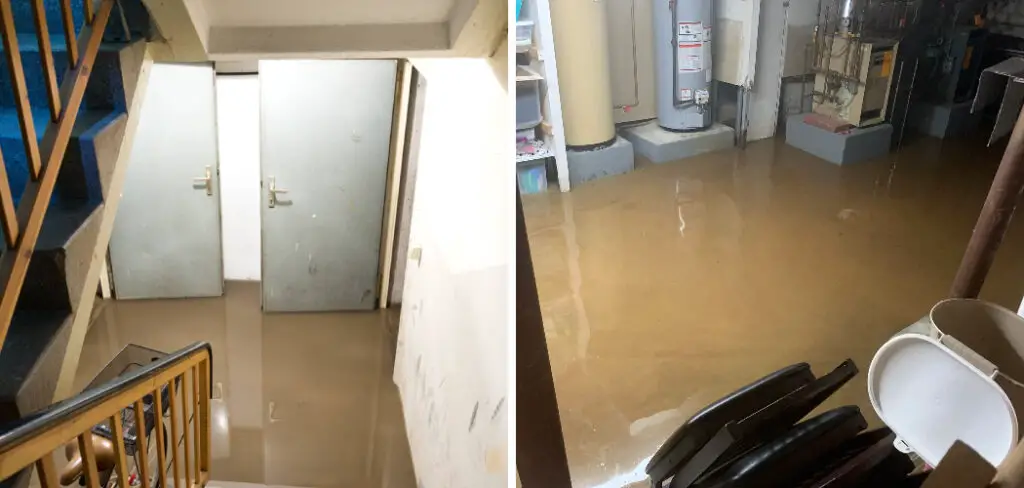
What Causes Basement Flooding?
Several factors can contribute to basement flooding. One of the most common is heavy rain. The water can overwhelm your home’s drainage system when particularly intense rainfalls. This can cause water to seep into your basement through cracks in the foundation or walls. Basement flooding can also occur if your home’s sump pump fails.
This device is designed to remove water from your basement, but it must work properly to do its job. If your sump pump isn’t working, water can quickly build up in your basement and cause flooding. Another cause of basement flooding is a faulty sewer system. If the sewer lines that carry waste away from your home become backed up, sewage can flow back into your basement. This is not only a health hazard but can also cause extensive damage to your belongings and your home’s structure.
Additionally, burst pipes can cause basement flooding. This usually occurs when water in the pipes freezes and expands, causing the pipes to rupture. Once the water starts flowing, it can quickly fill up your basement. Lastly, heavy rains can cause flooding in your basement even if your home is not at risk for the other causes we’ve mentioned. Rainy enough can overwhelm your home’s drainage system and cause water to seep in through cracks or other openings.
Why Is Basement Flooding So Dangerous?
Basement flooding is dangerous for some reasons. First, floodwater can contain sewage and other contaminants that can pose a serious health hazard. If you come into contact with floodwater, you could contract a serious illness. Additionally, floodwater can damage your belongings and your home’s structure. Another reason why basement flooding is dangerous because it can lead to mold growth.
When your basement floods, the humid conditions provide the perfect environment for mold to grow. Not only can mold cause health problems, but it can also damage your belongings and your home’s structure. Finally, basement flooding can be expensive to clean up. The cost of repairing damage caused by basement flooding can be high, and it’s important to remember that flood insurance typically doesn’t cover this type of damage.

Some Easy Ways How to Prevent Basement Flooding During Heavy Rain
1. Gather Your Emergency Supplies
Before heavy rain hits, ensure you have all the supplies you’ll need in case of a flood. This includes non-perishable food, water, a first-aid kit, a battery-operated radio, and flashlights. Gather these items and put them in a place where they’ll be easy to access if you need to evacuate your home. If you have time, you can also put together a “go bag” with additional supplies like clothes, medications, and important documents.
2. Know Your Home’s Weaknesses
Every home is different; some are more prone to flooding than others. If you live in an area that’s susceptible to flooding, it’s important to know your home’s weaknesses. This will help you take steps to protect your home before heavy rains hit. Common weak spots include doors, windows, and the foundation. If you’re not sure where your home’s weak spots are, you can hire a professional to conduct an inspection. Ensure your home is as watertight as possible before heavy rains arrive. Avoiding basement flooding during heavy rains starts with knowing your home.
3. Check the Forecast
Before heavy rains hit, it’s a good idea to check the forecast. This will help you know how much rain to expect and whether or not flooding is likely. Pay attention to weather advisories and warnings your local government or meteorological agency issued. If you know that heavy rains are coming, take steps to protect your home in advance. If possible, try to move your belongings to a higher level in your home. This will help protect them from floodwater damage.
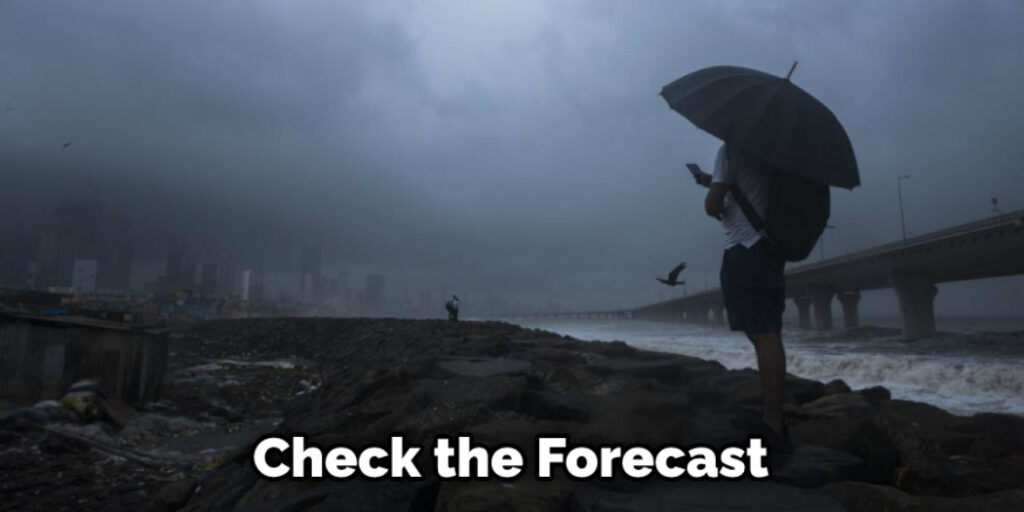
4. Clear Clogged Drains
One of the best ways to prevent basement flooding during heavy rains is to clear clogged drains. If your gutters and downspouts are clogged, rainwater will have nowhere to go but into your home. Clogged drains can also cause water to back up into your basement. First, remove any debris from your gutters and downspouts to clear clogged drains. Then, use a plunger or a snake to clear any blockages in the drains themselves. Regularly clearing clogged drains will help reduce the risk of basement flooding during heavy rains. If you live in an area that’s susceptible to flooding, it’s a good idea to clear your drains before each rainy season. Avoiding basement flooding during heavy rains is possible if you take the time to clear clogged drains.
5. Install a Sump Pump
A sump pump is a great way to prevent basement flooding during heavy rains. A sump pump is installed in the lowest point of your basement and pumps water out of your home and away from the foundation. If you live in an area that’s susceptible to flooding, a sump pump can be a lifesaver. First, make sure your basement is waterproofed. Then, install a sump pump in the lowest point of your basement. Sump pumps are relatively inexpensive and can save you a lot of money in the long run.
6. Use Sandbags
Sandbags are another great way to prevent basement flooding during heavy rains. Sandbags can be placed around your home to help redirect water away from the foundation. If you live in an area that’s susceptible to flooding, it’s a good idea to keep a few sandbags on hand. That way, you’ll be prepared if heavy rains hit. First, find a good location to place the sandbags. Then, fill the bags with sand and place them around your home. Be sure to use heavy-duty bags, so they don’t break. If you live in an area that’s susceptible to flooding, sandbags are a great way to prevent basement flooding during heavy rains.
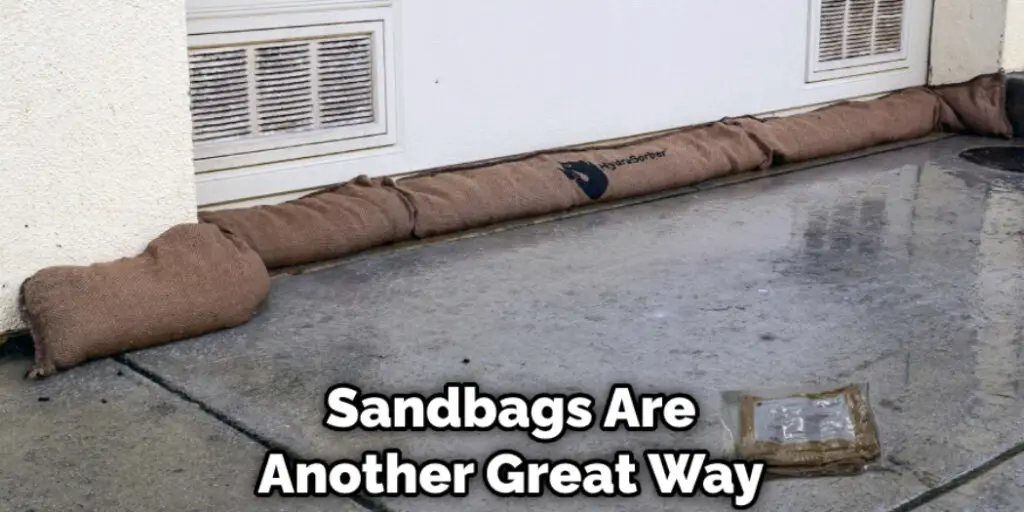
7. Try to Divert Water
One of the best ways to prevent basement flooding during heavy rains is to try to divert water away from your home. If you have gutters, make sure they are clean and free of debris so that they can properly channel water away from your home. You can also create a drainage ditch around your home to help redirect water. If you live in an area that is prone to flooding, it is also a good idea to invest in a sump pump. This pump will automatically remove water from your basement and help to keep it dry.
8. Be Prepared for the Worst
Even if you take all of the necessary precautions, there is always a chance that your basement will flood. It’s important to be prepared for the worst. Be sure to plan what you will do if your basement floods. Ensure you know how to turn off the power to your home and have a list of emergency numbers on hand. Be sure also to have a plan for how you will clean up the mess and prevent mold from growing. If you are prepared for the worst, you will be able to handle anything that comes your way.
Tips and Warnings on How to Prevent Basement Flooding During Heavy Rain
Tips:
- Check your basement regularly for any signs of water damage.
- If you see any water damage, take action immediately to prevent further damage.
- Do not wait for a heavy rainstorm to hit before taking action to prevent basement flooding.
- Understand your home’s drainage system and make sure it is properly installed and maintained.
- Make sure your gutters and downspouts are clean and in good working condition.
- Consider installing a sump pump to help remove water from your basement.
- Take action during a heavy rainstorm to prevent water from entering your basement.
- Be prepared for power outages by having a backup generator available.
Warnings:
- Do not wait until it is too late to take action to prevent basement flooding.
- Be prepared for power outages and have a backup generator available.
- Do not try to clean up or repair any water damage yourself. Instead, hire a professional if necessary.
- Do not enter your basement if there is any water present. Wait for the water to recede before entering.
- If you have a flooding emergency, call 911 immediately.
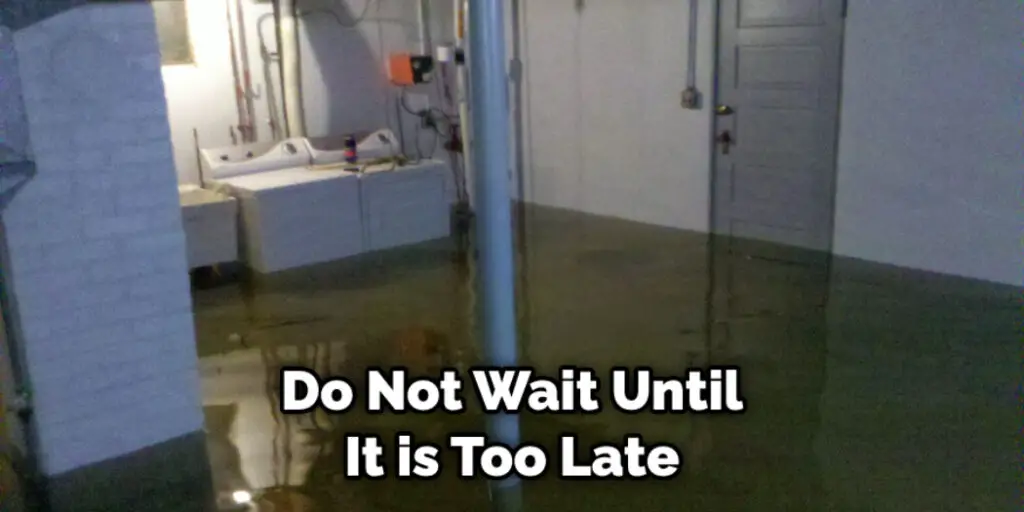
Conclusion
So there you have it; now you know how to prevent basement flooding during heavy rain. By following the tips and warnings above, you can help prevent basement flooding and the water damage that comes with it. So take action now and be prepared for the next big storm.
You Can Also Check It Out to Build a Multi Level Basement

